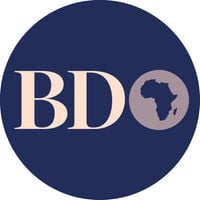
Central Bank of Kenya building in Nairobi. FILE photo | nmg
Summary
- Commercial banks want the Central Bank of Kenya (CBK) to lend them money cheaply to support their operations, but do so discreetly to spare them the risks of being viewed as weak by investors and depositors.
- The regulator said in a credit survey report that the banks had proposed to access money through its discount window “without the stigma that is associated with use of” the facility.
Commercial banks want the Central Bank of Kenya (CBK) to lend them money cheaply to support their operations, but do so discreetly to spare them the risks of being viewed as weak by investors and depositors.
The regulator said in a credit survey report that the banks had proposed to access money through its discount window “without the stigma that is associated with use of” the facility.
“The respondents [banks] made proposals for CBK to consider to further mitigate the impact of Covid-19. In summary, the banks have noted that there is need for CBK in conjunction with the National Treasury to come up with other specific measures that particularly cushion institutions,” the CBK said in the credit survey report.
“This could be in form of encouraging use of discount window at minimal rate and without the stigma that is associated with use of discount window.”
Borrowing from the regulator through the facility commonly known as “discount window” is often seen as an indication that the appropriating bank is desperate for money and cannot get it from other banks at the interbank market—putting at risk of a fallout with investors and depositors.
Traditionally the regulator is the lender of last resort for banks after exhausting all other avenues, including borrowing from each other.
The CBK currently charges 13 per cent to access money at the discount window.
In his first year in office, CBK Governor Patrick Njoroge shut three banks — Dubai Bank, Imperial Bank and Chase Bank —which were facing dire liquidity challenges and could meet depositor demands.
Since then no bank in Kenya has collapsed as a result of liquidity challenges.
To discourage use of the fund, the regulator gave banks stringent conditions, including reorganising assets and consolidating investments, selling forex and making cash calls to shareholders.
Dr Njoroge said banks that tapped the fund would also be required to file daily and weekly reports and put under targeted inspection.
Only a few banks have continued to rely on the regulator for cash to stay afloat, with most fearing the stigma of borrowing from the CBK.
The fact that banks are resorting to the CBK support in a market that has remained largely liquid in recent months is, however, an indicator of an inefficient interbank lending market.
For instance, there is a liquidity imbalance between banks, with tier one lenders controlling more than 80 percent of the available liquidity in the industry, to the detriment of smaller lenders.
The larger banks have also been reluctant to lend to their smaller counterparts since the collapse of the three smaller banks a few years ago, citing heightened risk.
According to the CBK annual report 2020, it had lent banks Sh67.2 billion through emergency support tools such as rediscounting Treasury bills and bonds, deposits and repurchase agreements (Repos)— treasuries cashed at the CBK with a promise to buy them back in future.
The CBK’s liquidity support framework for banks jumped fourfold to Sh36.9 billion in the year ending June 2020 from Sh7.7 billion in 2018.
Rediscounted Treasury bills stood at Sh116 million and bonds at Sh7.5 billion, while the CBK injected Sh21 billion by purchasing Repos.
In an indication that the banks being supported were becoming riskier the CBK set aside Sh11.7 billion as allowances for impairment losses, a fourfold jump from Sh3 billion in June 2019 in a period when lenders experienced heightened pressure under the coronavirus environment.
In the credit survey report, the CBK said that 74 percent of the banks had seen an improvement of liquidity by September while 24 percent of them had witnessed a decline in available funds.
Banks went into the coronavirus storm with liquidity challenges that prompted the regulator to proactively increase instruments that allowed them to access cash and survive.
To ensure banks remain above the water, the CBK lowered the Central Bank Rate by 125 basis point to seven percent to reduce the cost of funding for banks so that they would pay less on deposits.
Banks will now only be required to keep 4.25 percent of their deposits at the CBK down from 5.25 percent, releasing Sh35 billion in cash to keep them liquid.
“The funds assisted in balancing the banks liquidity position now that most clients are asking for relief and moratorium,” the CBK said.
The regulator also increased the duration lenders are allowed to keep repo from 28 days to three months in a bid to keep banks flush with cash during the coronavirus crisis.
Repos will also boost their cash in hand by allowing them to quickly liquidate the government paper to meet daily needs.





No comments :
Post a Comment